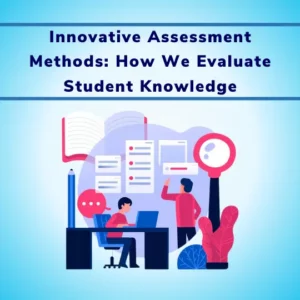Article Contents
Introduction
Job interviews have always been a daunting task to navigate. However, the advent of artificial intelligence (AI) is revolutionizing this vital part of the hiring process.
AI is ushering in a new era in the recruitment process by using sophisticated algorithms and machine learning models. AI interview techniques are not only improving efficiency but also adding a level of objectivity to candidate evaluations. This progress marks a significant and exciting change in the recruitment field.
Key Takeaways
AI interviews mitigate human bias and increase recruitment efficiency by utilizing artificial intelligence and machine learning algorithms to evaluate candidate qualifications, skills, and cultural fit objectively.
These interviews benefit recruiters and candidates by streamlining processes, saving time and costs, and providing candidates with feedback and personalized interview experiences enabled by platforms like Interviews by AI.
AI interview tools provide a holistic candidate assessment by analyzing verbal and non-verbal cues, linguistic skills, and technical abilities, as well as aligning a candidate’s values with company culture, significantly optimizing the hiring process.

Limitations of Traditional Interview
Traditional job interviews, while a staple in recruitment, have drawbacks.
Human Bias
Interviewers, being humans, may unconsciously form opinions based on non-job-related attributes, thus potentially impacting the impartiality of the job interview process.
The potential for bias is particularly high in unstructured interviews, where the absence of a standardized framework can let personal biases affect the evaluation of job applicants. It’s crucial to adequately prepare for your upcoming job interview and ensure all candidates are assessed fairly.
The ramifications of these biases are far-reaching, resulting in the unjust treatment of candidates and hindering their ability to demonstrate their true capabilities.
This can lead to subpar hiring decisions that fail to identify the most qualified candidates. Ultimately, the presence of biases in traditional interviews increases the risk of not selecting the most qualified candidates, with decisions swayed by irrelevant personal attributes rather than merit, posing a significant challenge for hiring managers.
Time-Consuming and non-scalable
AI interviews are often non-scalable and time-consuming. It takes a lot of human effort and time to initiate and assess candidates with a manual interviewing process
Dependency on Interviewer or Domain Expert
Most of the manual face-to-face interviews depend on the interviewer’s availability. The interviewer needs to spend time on this activity. The cost of conducting manual interviews is higher as domain experts need to spend time on this activity.
The Evolution of Interviews with AI

As a solution to these drawbacks, AI interviews have emerged, offering a more efficient, unbiased, and accessible recruitment process. These interviews leverage artificial intelligence to evaluate job applicants, optimizing the recruitment process by minimizing the resources human recruiters need to dedicate.
Through AI algorithms, candidate answers are scrutinized, particularly in the early stages, to refine the candidate pool before in-person engagements with recruiters.
Using a generative-based interviewing process, the System asks probing questions to candidates to assess domain knowledge.
Based on the candidate’s response, the system asks the next probing questions. The process is entirely adaptive and adjusts the difficulty level of questions based on candidate responses.
At the end of the interaction, the system rates the user for various skills according to evaluation criteria.
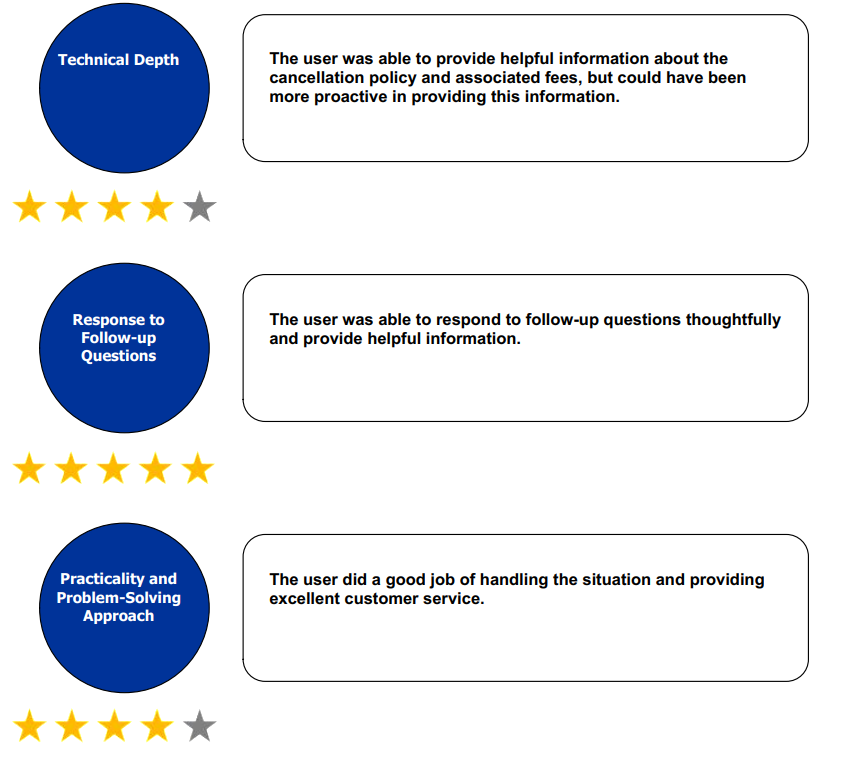
At the end of such AI interviewing, you can get a detailed, skill-based report of the candidate’s performance. You can assess the domain knowledge of the candidate. It would certainly help in the decision-making process of hiring or filtering the profile for the next round of evaluation.

The Mechanics of AI Interviews
Understanding the intricacies of AI interviews helps to comprehend how they achieve these advantages. AI interviews leverage advanced algorithms and AI tools to:
- Analyze video recordings and assess facial expressions, keyword usage, and tone of voice.
- Make hiring recommendations based on skills ratings during generative AI assessments.
- Predict a candidate’s fit for the role through data analysis.
These AI interviews harness the power of generative AI models to assess candidate responses. They evaluate facial expressions, keyword usage, tone of voice, and other verbal and nonverbal cues to determine a candidate’s suitability. The machine learning models employed in this process are diverse, encompassing everything from:
- Linear Regression
- Logistic Regression
- Decision Trees
- Random Forests
- Support Vector Machines (SVM)
- Naive Bayes
- K-Nearest Neighbors (KNN)
- Neural Networks
With deep learning models also being prevalent, large language models have gained significant attention in the field, especially when it comes to utilizing high-quality training data.
A Comprehensive Skill Assessment with AI Interviews
Beyond their efficiency and objectivity, AI interviews also offer a comprehensive skill assessment of candidates. They employ natural language processing and machine learning algorithms to evaluate language proficiency, analyzing:
- speech patterns
- syntax
- grammar
- vocabulary
- pronunciation
- fluency
Efficiency and Cost-Effectiveness of AI Interviews
The integration of AI into the interview process offers significant benefits, including:
- Efficiency and cost-effectiveness
- Automation of tasks such as candidate sourcing, screening, and scheduling
- Streamlining the screening process and improving time efficiency
- Potential savings of up to 23 hours on screening resumes for an average hire
- Significant annual savings in interview time and costs have been reported by companies like Unilever
AI interviews provide considerable cost savings as well. By minimizing the resources required for recruitment, including time spent on screening and interviewing, companies can achieve potential savings in recruitment costs. For instance, Unilever was able to save approximately $1 million annually by utilizing AI in its hiring process.
Moreover, AI interview platforms have become increasingly accessible, with platforms like interviewsby.ai currently available for use free of charge. This provides a golden opportunity for a diverse range of organizations aiming to enhance their hiring processes by implementing generative AI.

Summary
In conclusion, AI interviews are revolutionizing the recruitment landscape. By addressing the limitations of traditional interviews, AI brings a new level of efficiency, objectivity, and comprehensive evaluation to the table. This technology has automated tasks such as resume screening, candidate shortlisting, and overall hiring processes, leading to significant time and cost savings for recruiters.
Additionally, AI enhances the efficiency of interviews in recruitment by automating ordinary tasks, offering personalization, and providing data insights throughout the hiring process. The benefits of AI interviews, ranging from automation to personalization and data analysis, are achieved through the use of advanced algorithms and generative AI models.
As we welcome the rise of AI interviews, we can look forward to a future where recruitment is not only more efficient and cost-effective but also more equitable and comprehensive. Let’s embrace this new era of AI-enhanced recruitment and unlock the true potential of our hiring processes.
To prepare for an AI interview, practice speaking naturally, incorporate keywords from the job description, and consider using AI-powered interview preparation tools. Additionally, familiarize yourself with the interview platform and pay attention to non-verbal cues. Good luck!
AI is used in job interviews through automated question screens and AI algorithms analyzing candidate responses, primarily during the first round of interviews to narrow down candidates for personal interaction. This can include text or video submissions, as well as AI-led interviews.
Yes, final round AI works, as it provides real-time transcription and helps users focus on the conversation during interviews, ultimately improving the interview experience.
Human biases can significantly affect traditional interviews by causing interviewers to form opinions based on non-job-related attributes, which can impact the impartiality of the process. It is important to be aware of these biases and strive for a fair and objective evaluation of candidates.
AI interviews use artificial intelligence to assess job candidates, helping to streamline the recruitment process by analyzing candidate responses and identifying top contenders before human recruiter involvement. They employ algorithms to review candidate answers and streamline the selection process.
They employ advanced generative AI technology to review candidate responses to presented case studies or scenarios. The candidate is required to type their response, and the AI system, in turn, generates the next question based on the context of the candidate’s answer.
The AI system then carries out a detailed analysis, focusing on the candidate’s communication skills and domain knowledge, providing valuable skill feedback. This approach streamlines the selection process and allows for a more in-depth evaluation of the candidate’s abilities.


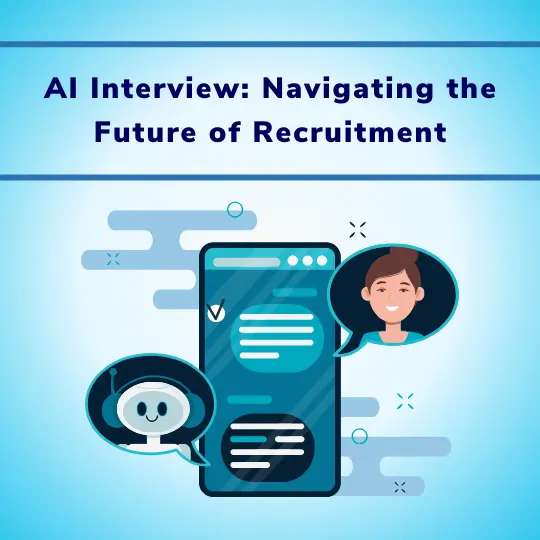

![How Government-Led Exams at 250+ Locations Are Setting New Standards of Integrity [Case Study]](https://www.eklavvya.com/blog/wp-content/uploads/2024/04/Enhancing-Exam-Integrity-Government-Certification-in-250-Locations-150x150.webp)
![Transforming Central Govt. Exams Evaluation: How Onscreen Marking is Leading the Charge [Case Study]](https://www.eklavvya.com/blog/wp-content/uploads/2024/04/How-Onscreen-Marking-Revolutionized-Central-Govt-Exams-Case-Study-1-150x150.webp)
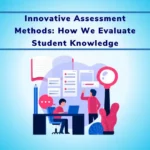
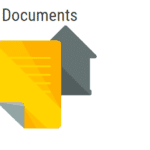

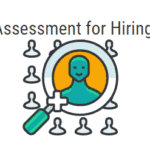











![How Onscreen Marking Revolutionized Central Govt Exams [Case Study]](https://www.eklavvya.com/blog/wp-content/uploads/2024/04/How-Onscreen-Marking-Revolutionized-Central-Govt-Exams-Case-Study-1-300x300.webp)
